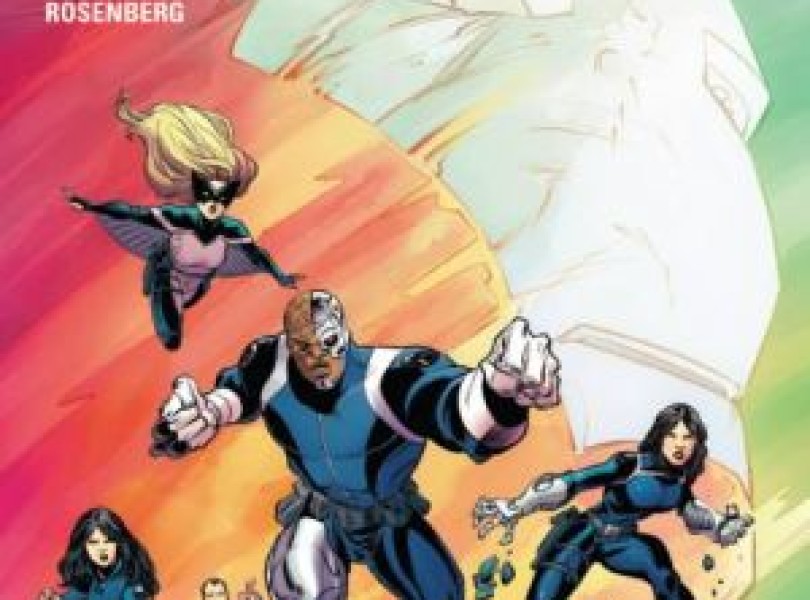Agents in search of a mission.
There’s a certain irony in the fact that Marvel tapped Marc Guggenheim, one of the driving forces behind The CW’s Arrow, to pen an Agents of S.H.I.E.L.D. comic. Where the previous S.H.I.E.L.D. comic was loosely inspired by the cast and framework of the show, this new series makes no bones about why it exists or what audience it’s targeting. This series is basically the show recreated in comic book form and within the confines of Marvel’s comic book universe. Sadly, it doesn’t seem like the comic has captured much of what actually makes the show enjoyable in the first place.
If anything, the comic is more reminiscent of the show in its early Season 1 form, before the events of Captain America: The Winter Soldier shook up the status quo and gave it the focus and drive it needed. There’s a similarly aimless quality to this series right now, and little impetus to the plot. If anything, the book seems more interested in dragging Tony Stark into the mix rather than building a compelling conflict. All the drama that has propelled the TV series – Coulson’s mysterious resurrection, the Hydra conflict, the rise of the Inhumans – is absent. Not that it would be ideal for the comic to shoehorn those same conflicts into the picture, but it should add something equally bold and dramatic in their place. This issue ignores the one big advantage the comic has over the show. It has no limits on where it can go, what it can do and whom it can showcase. Why is this book so small and unassuming?
This sense of malaise extends to the cast, which includes Agents May, Fitz and Simmons, as well as Skye/Daisy, Deathlok and Mockingbird. The script shows little interest in fleshing out or exploring most of the characters besides Coulson. For the most part, they seem to be present because they’re in the TV version and it’s expected of them. They only have significance because of the reader’s familiarity with the show, not because of anything on the page. Guggenheim writes Coulson as a perfectly likable protagonist, but even with this issue centering around him reuniting with an old flame, there’s little emotional pull to the script.

Nowhere is this perfunctory treatment more aggravating than with Daisy. She’s a textbook case of how corporate synergy can diminish a character. Jonathan Hickman set her up to be the face of S.H.I.E.L.D. when he wrapped up Secret Warriors, and every story since then has only served to diminish her importance and make her more like her TV counterpart. And for what? So she can serve as a minor supporting character?
German Peralta’s art gives this series a quiet, laid-back quality, which doesn’t necessarily help when it comes to the problem of the book lacking scope and drama. Peralta’s figures tend to be flat and emotionless. Coulson’s romantic entanglement is sorely lacking in passion and energy. Too often it can be difficult to distinguish one character from another in close-up shots, as there’s surprisingly little to distinguish May from Daisy or Fitz from Coulson. Only Rachelle Rosenberg’s vivid colors serve to inject some life into a lifeless book.
For all the comparisons I’ve drawn to the show, it’s important to reiterate that this comic is disappointing on its own merits, not simply in relation to something else. The fact that it shares its name with the TV show only draws attention to its storytelling flaws.
Agents of S.H.I.E.L.D. the comic doesn’t do much to live up to the legacy of the TV series. The cast may be similar, but the comic has no clear sense of purpose of a compelling conflict to propel these characters forward. Hopefully that will come with time and we’ll see the comic make strides as great as the show once did in its troubled early months.



